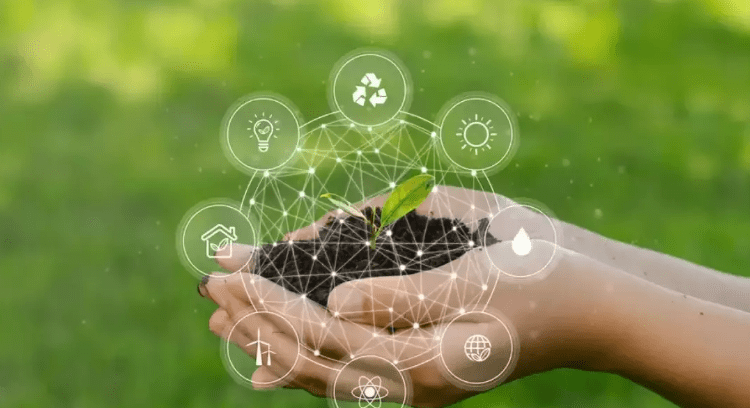The Intersection of Sustainability and MarTech: Green Marketing Tools
As the global focus shifts toward sustainability, businesses are reimagining their operations to align with environmentally responsible practices. Marketing technology (MarTech) has emerged as a critical enabler in this transformation, helping organizations implement green marketing strategies while ensuring efficiency and measurable impact. This blog delves into the intersection of sustainability and MarTech, exploring tools and practices that drive eco-conscious marketing efforts.
What is Green Marketing?
Green marketing refers to the practice of promoting products or services based on their environmental benefits. It extends beyond traditional advertising to include sustainable business practices, eco-friendly product designs, and transparent communications about environmental impact. The integration of MarTech in green marketing empowers organizations to adopt data-driven approaches, ensuring both ecological and economic value.
The Role of MarTech in Driving Sustainability
- Optimized Resource Management
MarTech solutions, such as advanced analytics and AI-driven tools, help companies streamline operations, reducing waste in campaigns. For instance, data insights can prevent overproduction of physical marketing materials and eliminate inefficient digital ads that consume unnecessary energy. - Energy-Efficient Campaign Delivery
Platforms that focus on sustainable digital marketing practices—such as minimizing energy consumption in servers or optimizing ad delivery for lower carbon footprints—are gaining traction. By partnering with green-certified cloud services and digital platforms, marketers can ensure that their campaigns align with environmental goals. - Data-Driven Sustainability Tracking
MarTech offers tools for tracking the environmental impact of marketing activities. Carbon footprint calculators integrated into digital platforms can measure emissions associated with digital ads or content hosting, enabling marketers to adjust strategies accordingly.
Key Green Marketing Tools in MarTech
- Customer Data Platforms (CDPs)
CDPs consolidate customer information into a single platform, enabling marketers to design personalized campaigns that target specific eco-conscious segments. This ensures minimal resource wastage by reducing the number of irrelevant ads. - Lifecycle Assessment Tools
MarTech solutions such as lifecycle assessment tools help companies evaluate the environmental impact of their products, marketing materials, and campaigns. These insights guide more sustainable decision-making. - Green AdTech Platforms
AdTech tools like Good-Loop focus on ethical advertising by donating a portion of ad revenue to environmental causes and ensuring that ads are served on energy-efficient platforms. - Sustainable Content Management Systems (CMS)
CMS platforms with sustainability features allow businesses to host content on green servers, use recyclable templates, and manage digital assets efficiently, reducing energy usage. - AI-Driven Campaign Optimization
AI tools can predict campaign outcomes and optimize resource allocation, ensuring minimal energy expenditure on underperforming ads or redundant efforts.
Examples of Green MarTech in Action
- Eco-Friendly Digital Campaigns
Companies like Patagonia integrate sustainability into their marketing tech stack by leveraging tools that promote transparency, such as blockchain-based supply chain monitoring systems. - Paperless Marketing Initiatives
Retailers like IKEA have transitioned from printed catalogs to digital platforms, supported by MarTech solutions that track and optimize user engagement while minimizing paper waste. - Carbon-Neutral Hosting
Major brands are adopting green hosting solutions like Google Cloud, which powers marketing websites and apps with renewable energy sources.
Benefits of Merging Sustainability with MarTech
- Enhanced Brand Reputation
A commitment to sustainability, powered by innovative MarTech solutions, resonates with eco-conscious consumers, driving loyalty and trust. - Cost Savings
Efficient resource management, waste reduction, and optimized campaign delivery result in significant cost savings. - Regulatory Compliance
As governments impose stricter sustainability regulations, MarTech helps organizations track and meet these requirements seamlessly. - Competitive Advantage
Businesses integrating green MarTech are positioned as leaders in sustainability, gaining a competitive edge in the market.
Challenges and Considerations
While the benefits are clear, implementing green MarTech strategies is not without challenges:
- Cost of Adoption: Transitioning to green-certified tools and technologies can involve upfront investments.
- Data Complexity: Measuring the sustainability impact of marketing campaigns requires robust data systems and expertise.
- Greenwashing Risks: Companies must ensure their sustainability claims are genuine to avoid reputational damage.
Conclusion
The convergence of sustainability and MarTech offers a pathway for businesses to achieve eco-friendly marketing practices while maintaining profitability. By leveraging tools like CDPs, AI-driven optimization, and green AdTech, companies can reduce their environmental footprint, align with consumer expectations, and drive meaningful change in the industry.


Comments are closed.